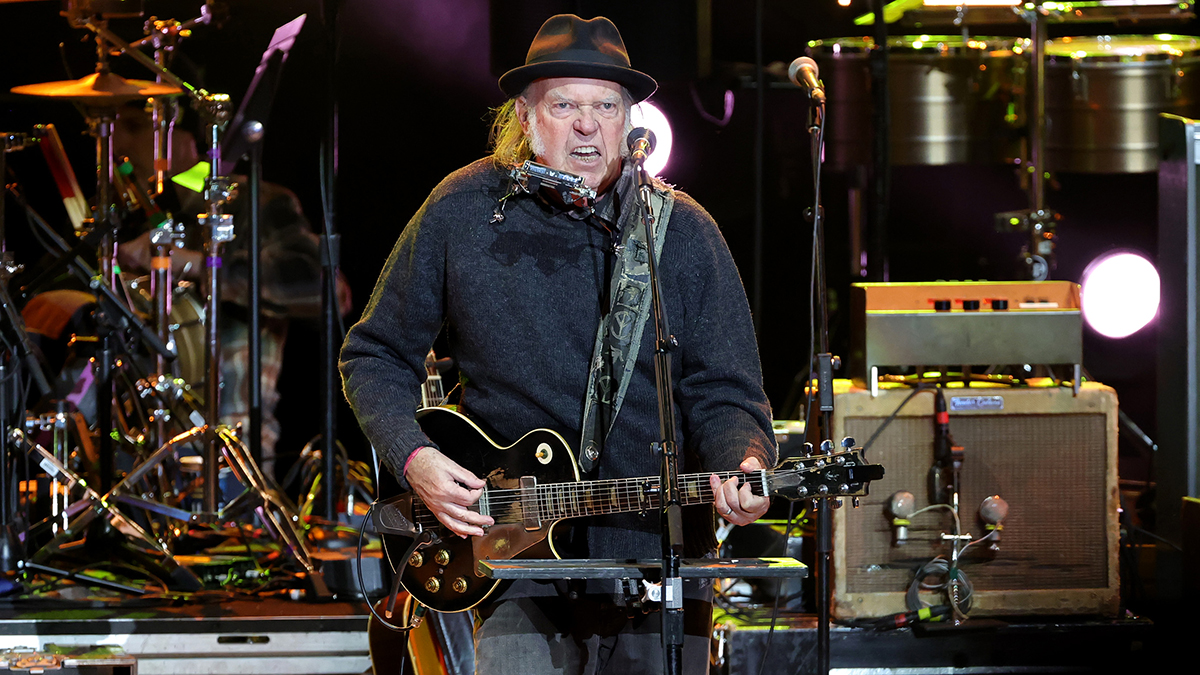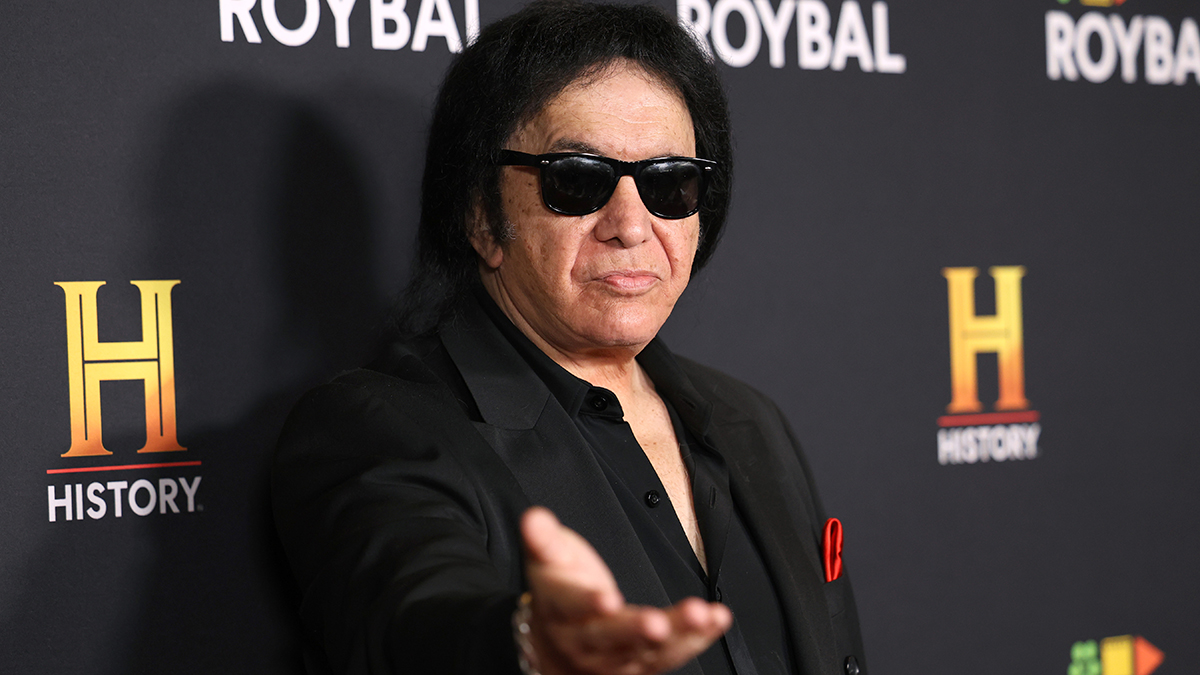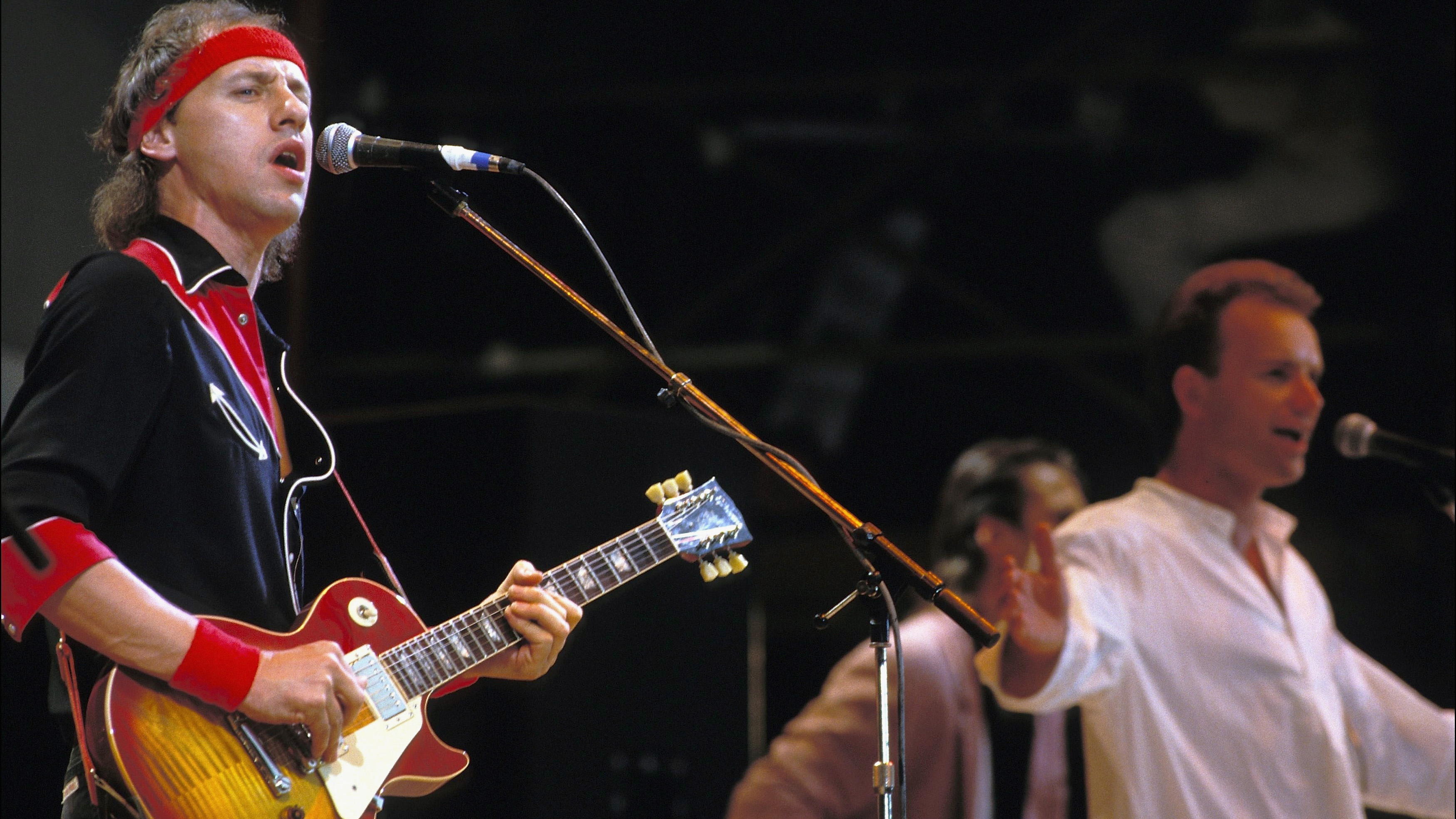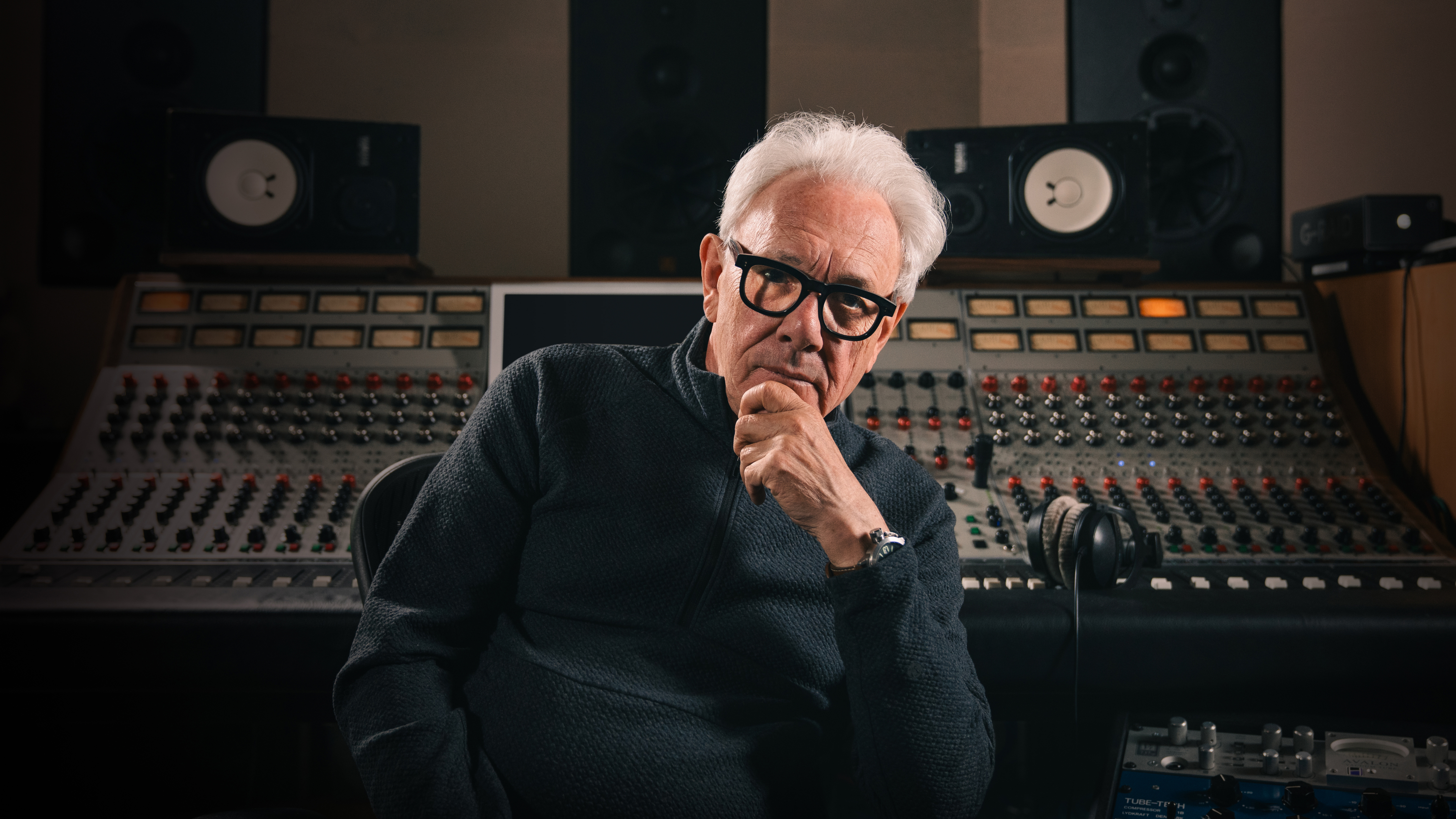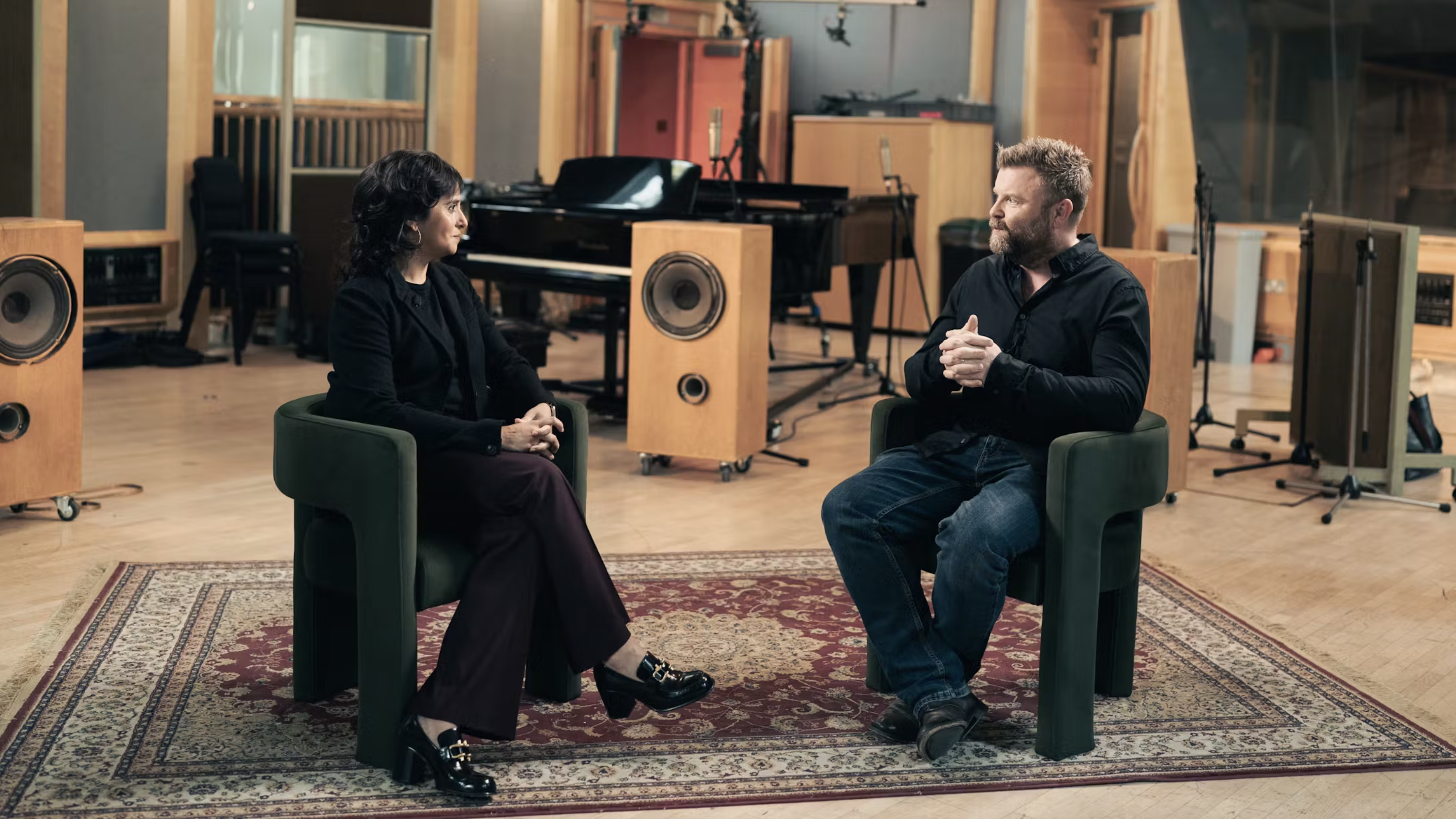"We’ve been making guitars for 70 years. We'll be teaching people how to play for the next 70" - Fender CEO Andy Mooney on the company's mission
Chief Executive talks Fender Songs and how the iconic guitar company is trying to reach out to new potential players
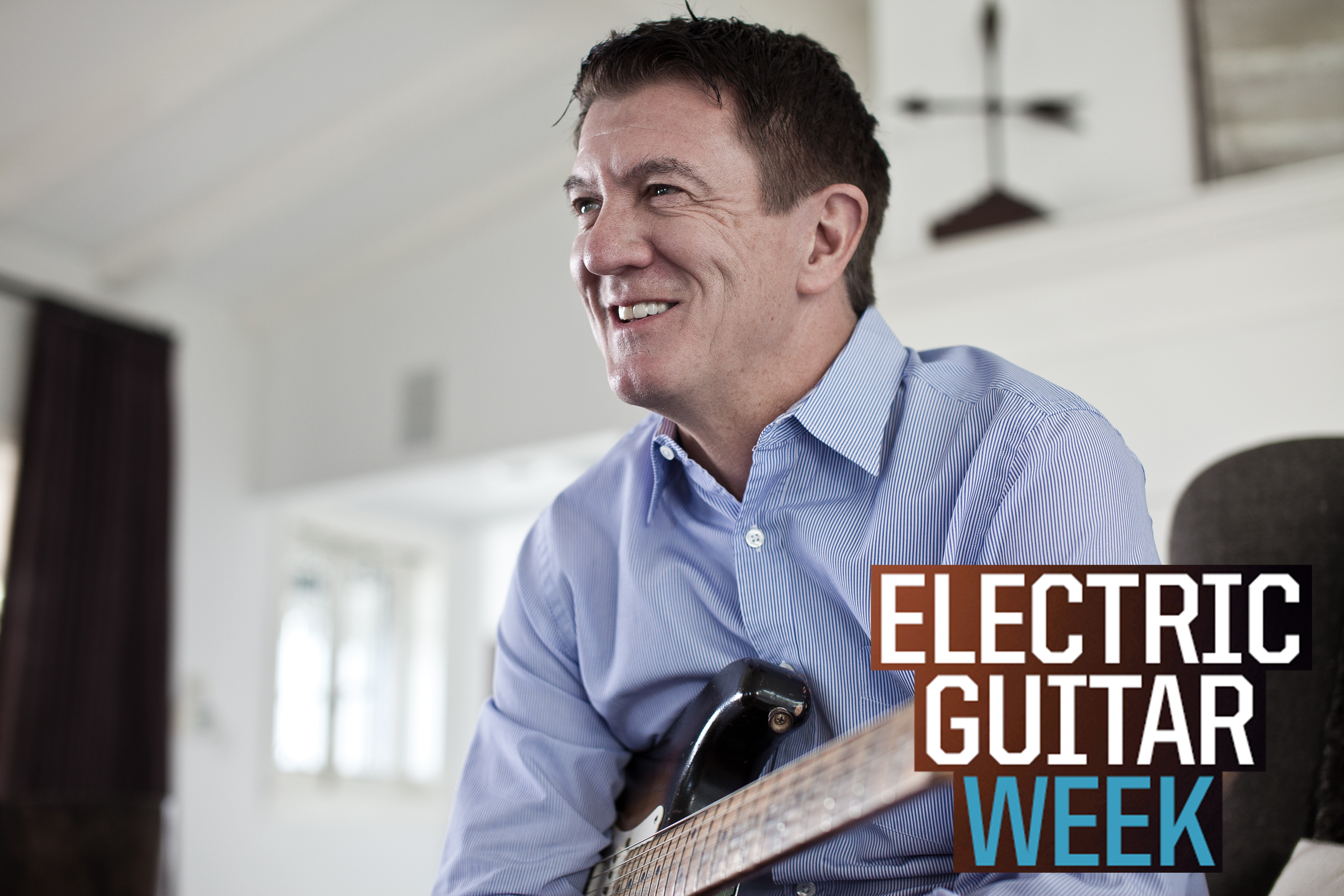
ELECTRIC GUITAR WEEK: For a company with such a rich history, you could forgive Fender for wanting to focus on the past as it moves into the future. But it couldn’t be more different. While its new Fender Ultra Series balances heritage with distinctly modern features, the company’s visions for the future are going far beyond instrument design.
Its Fender Play and recently-announced Fender Songs services have been years in the making, and are aiming to change the way players begin and learn guitar playing. The company is also leading the way in speaking openly about reaching out to the growing demographic of female players.
As part of Electric Guitar Week, we sat down with Fender’s CEO Andy Mooney to talk about Fender Songs, reaching out to female players and how he the company can reach out to a diverse audience of new players.
Electric Guitar Week is brought to you in association with Fender. Check out the Electric Guitar Week hub page for more tips and tutorials.
Most people want to play quietly and solo in their own home, singing along with their favourite songs
Who is Fender Songs aimed at?
“Well, Fender Play was designed for people picking the guitar up for the very first time and helping them through the first year. Fender Songs is for people who have essentially committed to guitar and it’s a way to keep them engaged in playing, we believe, that much deeper and much longer in that it gives them the ability to easily and dramatically expand their repertoire.
“I gotta go back to when I was learning guitar, back in the days of vinyl, you come back and forth trying to listen to [music] audibly and then you have to spend money on the sheet music. And then it didn’t get much better with tape decks. But, when you look at how easy it is now to find the chords, find the lyrics, play in time, slow it down if you need to to master the chord sequences.
Get the MusicRadar Newsletter
Want all the hottest music and gear news, reviews, deals, features and more, direct to your inbox? Sign up here.
“And one of the things that we found which was fascinating in some of the beta testing is a lot of people were searching for chords for songs that didn’t even have guitar in. But every song has a chord structure and it was a way for them just to kind of accompany themselves singing along to their favourite songs."
So if you’re looking at songs which don't really have guitar in them, are you reaching out to new people?
"I think we are. In fact, I think one of the things that the industry’s been slow to recognise, including ourselves -when we did the first round of research back in 2015 and then the second round in 2018, in that case, we expanded it into the UK- we found 72 per cent of people will pick up the instrument for no other reason other than to learn a new life skill.
“So, not everybody wants to be standing with one foot on the monitor with the wind blowing through their hair. Most people would want to play quietly and solo in their own home, singing along with their favourite songs. And I think we have to embrace them alongside the really gifted virtuoso players that still exist out there.”
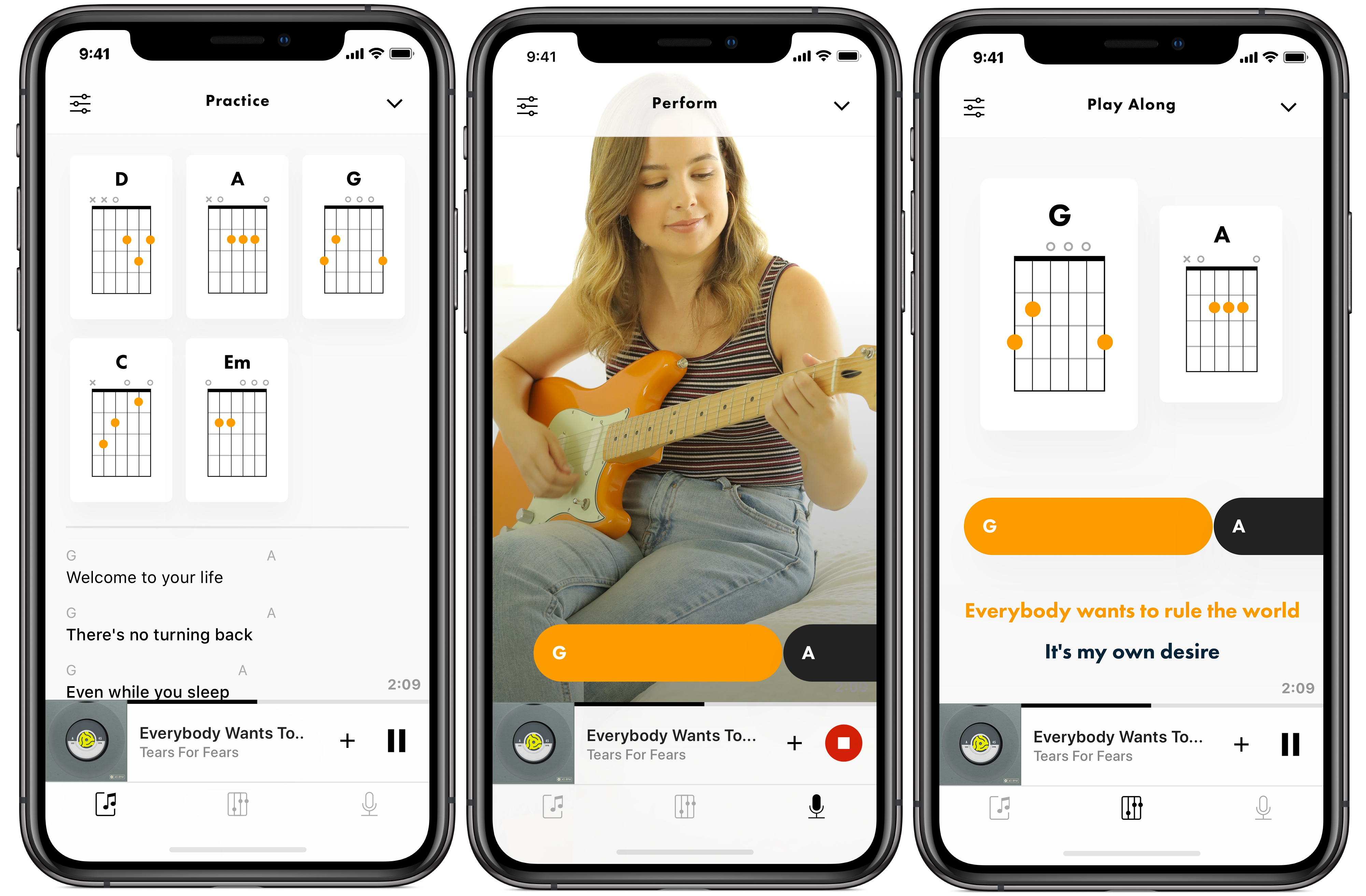
What do you think about reaching out to female players, because, traditionally, the guitar industry is somewhat male dominated?
“Yeah, that was a big ‘aha’ for us when we did the first research – 45 per cent of the guitars we sell every year go to first time players, and half of those first time players are women.
"That was a shocker. But part of why I think we didn’t realise it and didn’t have visibility to it was a) they were opting more often to buy an acoustic guitar than an electric guitar for their first guitar, and b) they were more likely to buy online than in a traditional store. They didn’t have someone to relate to when they were in the store.
“I think we’d all agree that guitar stores can be intimidating venues for any beginner player. And even more so I think for women because of a lack of female sales associates. So that insight fundamentally changed what we did in artist relations and then product development from the point of view of developing signature guitars.
“We’ll introduce more signature guitars for female artists next year than we’ve done in our entire 70 year history on a very broad range of genres and personalities. So we’re pretty excited about that.”
What do you think needs to happen from an industry-wide perspective?
“I think I, as a consumer, outside the industry who bought a lot of stuff, I always said, going into guitar store is kind of like joining a club – you only get in the club if you're already in the club. So it’s not historically an industry that invites new players into it.
"And particularly people starting for the very first time. So that’s been my consistent message to the dealer base when we meet with them either in the US or in Europe. It’s arms wide open. The more people that play, the better. The better off we all are."
Going back to Fender Songs, how do you think it’ll stand up to competition from free online tab sites? Are they direct competition?
"Well, they’re certainly competition. Let me step back a little first. When we first studied or assessed what we felt the potential of Play was, a lot of people said, ‘Well, we don’t think this is going to succeed because you can get all this content for free’. Which is somewhat true today because the monetisation potential for a lot of content for artists is pretty limited.
“But one of the companies that we looked at when we were developing Fender Play was lynda.com, which does video-based online tuition to learn products like Adobe Photoshop. All of that content is also available for free but it’s disorganised with spotty quality. You basically gotta reteach yourself every time you interact with someone new. And they developed a business that generated 250 million in revenue and were eventually acquired by LinkedIn for over a billion dollars.
“So we felt, ‘okay, that’s not bad!’. But in our case, why Fender Play was so important and why I think like Fender Songs is a good corollary to that is we looked at the online tuition market as an independently viable business. But if we reduce the abandonment rate by just 10 per cent then we had the chance to double the size of the hardware side of the business and there are some early signs that that’s working.
“Again, I think with Fender Songs, if we can keep people more engaged, using the instrument more, they’re likely to upgrade or likely to buy more accessories and will go to the local local music store. So I still think people will pay money. And, in the scheme of life, the way we look at it, Fender Songs will be here in the US for $4.99 monthly or $42 annually. That’s less than the cost of a single face to face lesson.
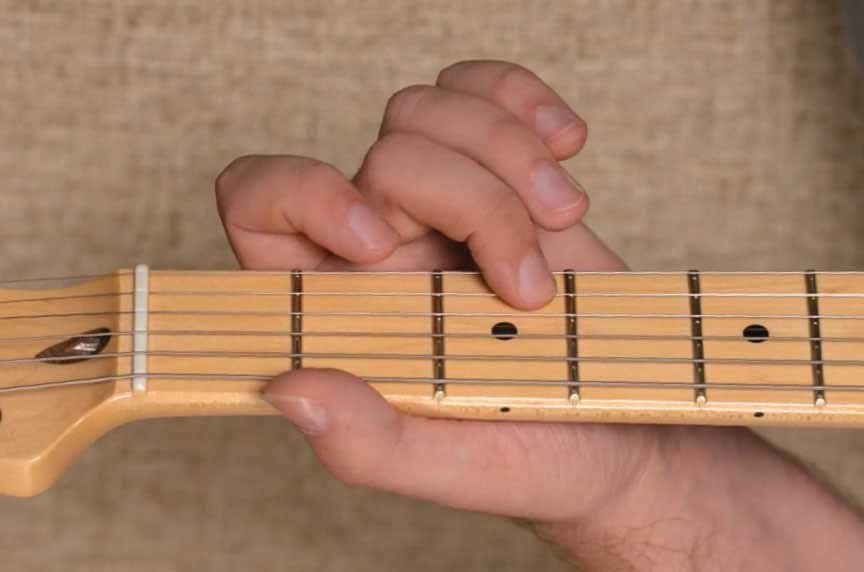
Can Fender Songs benefit guitar teachers?
“When we introduced Fender Play a lot of the dealers who were offering face to face lessons were concerned that we will be competing with them. They were concerned and I totally understand the concern. But in all of the dealers who are heavily committed to online lessons – and there’s a number of great ones out there – their demand for lessons is going up, not down because there’s just more people in the category. We thought that we could swell the industry by reducing the abandonment rate and getting more committed players.
“What we actually found is that marketing Fender Play caused more people to think about learning who hadn’t previously thought about it. Or relearning if they’d been one of the people that had tried it before, stuck the guitar under the bed and now were going to bring it back out. Because again, that was the other interesting thing we learned about Play, which I think we’ll also find about Songs, is, when we did the research, engagement from a demographic perspective is very high up until the general age of getting married. Your priorities shift, then you have kids and they shift even more. And then when kids go to college, your priorities shift back again.
“We assumed that a very large percentage would be younger people buying an inexpensive guitar and an inexpensive amp if it was electric. But what we found is that was only 50 per cent of the community. The other 50 per cent were people whose kids have gone to college. They had the money and the time and they were buying high-priced guitars, high-priced amps, had a lot of time to talk to each other to get referrals online, [to work out] what’s working, what’s not, you know, what does the S1 switch on the [Ultra] do?
“So again it was a big ‘aha’ to us. The other thing that we offer either directly on fender.com, but also in collaboration with the dealers, is if you sign up to a product on an annual basis, either Songs or Play, you get access to a 10 per cent discount on any Fender gear that you buy in that year. That’s significant! Particularly if you’re buying the higher price-point product. So you can essentially get your lessons for free on either product by subscribing for a year.

Is the marketing going to be targeted at new demographics as well?
"Well, the marketing is more tied around creating the emotional connection, being ‘why should I do this?’. Again, with Play, we felt that it was a milestone to get people to commit if they were able to master their first song. So we teach the skills that you need in Play around doing exactly that. You come into the product, you declare your genre and that gives you a potential setlist.
"Then you get taught the skills to master those songs rather than the other way round. I taught when I was very much younger. You know, are you going to teach somebody to play major minor scales or are you going to teach them how to play House Of The Rising Sun? My approach – which I’m glad was all intuitive back then- I’m glad it was a song-based approach because you were teaching them how to play the chords within the context of the song.
“I think that will be the same with Songs – the emotional connection is between the fan and the music. And again, what this has allowed us to do, because we have been very diligent in securing rights with all of the publishers and the labels for both products, is that the artist is fully compensated.
“One of the things during the beta testing we found, which of course, was music to the ears of the labels and publishers, and to us, is that a person learning a song, as opposed to somebody listening to a song, streams it 20 times more regularly. So it’s an accelerator to the revenue stream; it’s a gearing up of streaming revenues for the artist community.”
Are there plans for continual improvement of the Songs app?
“Yes, absolutely. One of the great things about digital products is it’s like being a retailer – you get instantaneous hour by hour feedback from your customer. So over the two-plus years now that Fender Play has been in the marketplace, we’ve evolved the product quite significantly and will continue to do so every year.
“We’ll learn a lot after October 22nd [Fender Songs’ US launch date] with the launch of Songs and it will be continually evolved within the product itself but also over time can be expanded. We will expand on to other platforms even beyond iOS and will expand it into other geographies as we secure the licensing rights for songs in other territories."
Do you have a time frame for the UK and European rollout?
“We’ll begin the dialogue with labels and publishers essentially tail end of this year. So we’d like to expand in 2020. And the UK would be top of the list. Beyond the US it’d be number two on the list. It’s a complicated process. It’s taken us two years. It’s taken us as long to negotiate the rights as it has to develop the product.”
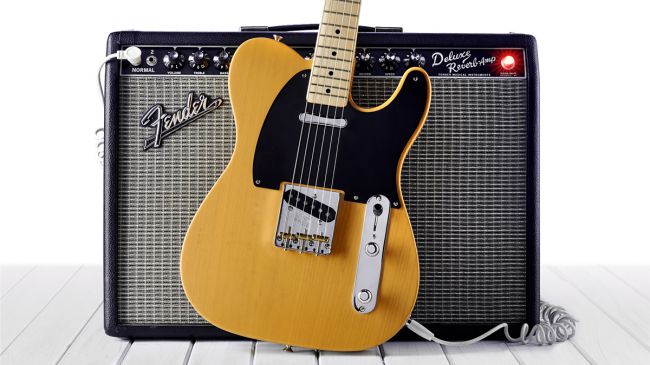
45 per cent of the guitars that we sold every year went to new players; 90 per cent abandoned the instrument in the first year
Where do you see Fender Songs and Fender Play in five years?
“Well, in the case of Fender Play, because we did the work to understand what we felt the size of the market would be, we estimate that in the English speaking countries alone, there are a million new guitar players every year.
"As of this morning [October 17th], we’re sitting at roughly 110,000 paying subscribers and 116,000 [total] users – the difference between the two numbers being the people who are on a trial [membership].
“I think the longer term potential for Fender Play is to have a million subscribers in the network. How long that would take? I think five years at least, but the way that I look at it is we’ve been making guitars for 70 years. I expect us to be teaching people how to play guitars for the next 70 years.
“So this is definitely a long term commitment that has proven to do more than we thought it would in terms of expanding our hardware sales in the industry. And Fender Songs… What’s kind of mind blowing in my view is that last year there were 255 million people subscribing to a digital streaming service. Goldman Sachs predicts that number going to 700 million in three years. And over a billion by the year 2030. So with Songs, the TAM, the total addressable market, is anybody who plays guitar – that is massive!"
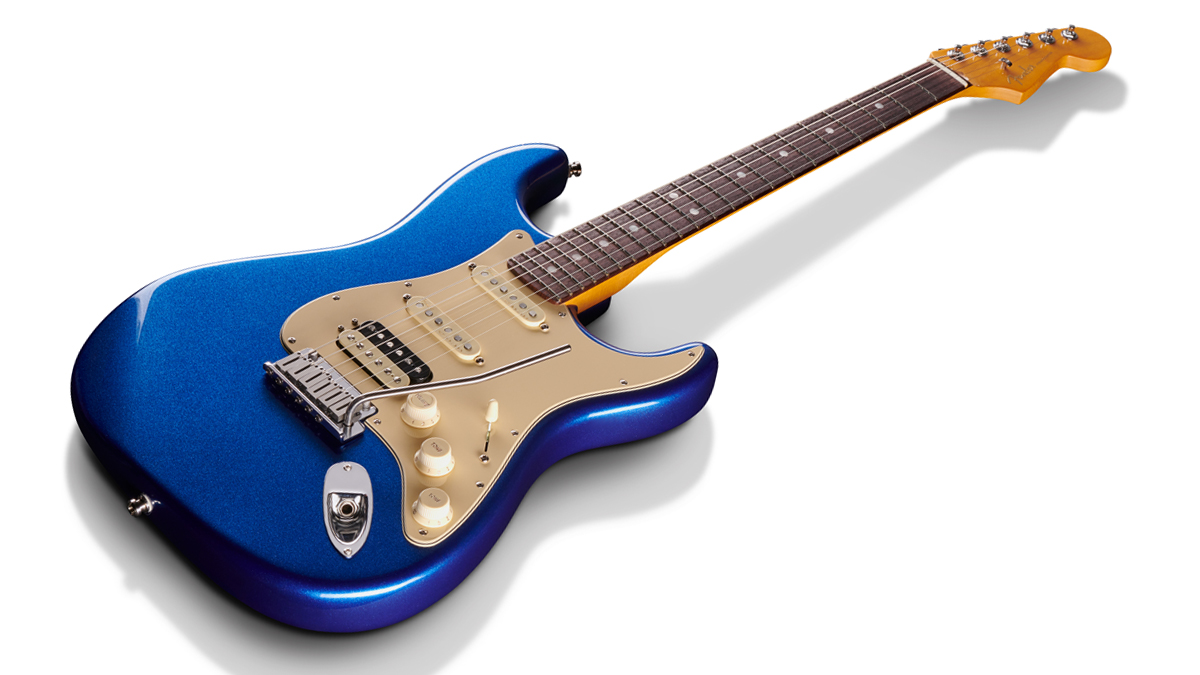
Of course, paid for streaming is such a convenient option. But do you think potential Songs users will feel happy to spend a further five bucks a month?
“For Songs, it’s even less than a fiver! It’s 42 bucks a year for an annual subscription and you can make that back on the purchase of almost anything either through our dealer network or on fender.com.
"So we are hugely optimistic about the potential, but again, it will take us time to continue to develop the product, continue to expand the platforms, to continue to expand the geographies. But three years from now, if you’re looking for even a relatively modest percentage of a total universe of 700 million subscribers, I think the potential is significant.
“Going back to the research, 45 per cent of the guitars that we sold every year went to new players; 90 per cent abandoned the instrument in the first year, so, as an industry, we don’t have a problem attracting new entrants, we have a member retention issue.
"So we did the math. The 10 per cent of the salmon that make it through the dam have a lifetime value of $10,000 [each]. They buy five to seven guitars, they buy multiple amps, they drive the hardware side of the business.
“We felt if we could reduce the abandonment rate by just 10 per cent we could double the size of the industry. [There are] a million new entrants in English speaking countries alone every year; only 100,000 of them commit. If you could reduce abandonment by 10 per cent, that's an incremental 100,000 with an average lifetime value of $10,000. That’s an incremental billion dollar retail business every year.
“So I’m hugely optimistic about the potential of the industry because we’ve got these two very positive external trends. There’s demand for recorded music at an all time high and growing through streaming. The very thing that everybody in the industry felt had killed the industry, digital distribution, in fact, is now 60 per cent of the revenue base for the entire industry.
Also the demand for live music, particularly festival experiences is at an all time high and growing. 93 million people attended a Live Nation concert. That was up 10 million from the prior year. That music is predominantly guitar-based music.”
Electric Guitar Week is brought to you in association with Fender. Check out the Electric Guitar Week hub page for more tips and tutorials.
Chris has been the Editor of Total Guitar magazine since 2020. Prior to that, he was at the helm of Total Guitar's world-class tab and tuition section for 12 years. He's a former guitar teacher with 35 years playing experience and he holds a degree in Philosophy & Popular Music. Chris has interviewed Brian May three times, Jimmy Page once, and Mark Knopfler zero times – something he desperately hopes to rectify as soon as possible.
“This upcoming tour will be the last time you get a chance to see me for quite sometime. I am going on a vacation”: Devin Townsend announces an indefinite break from touring – but it sounds like he's going to be keeping himself busy in the coming months
“After every take, Mutt would say, ‘Check the tuning, man!’ This went on and on for almost a year. One day, I just gave him the guitar and said, ‘You tune it. I can’t take this anymore!’”: How legendary producer Mutt Lange drove the Cars half-mad

